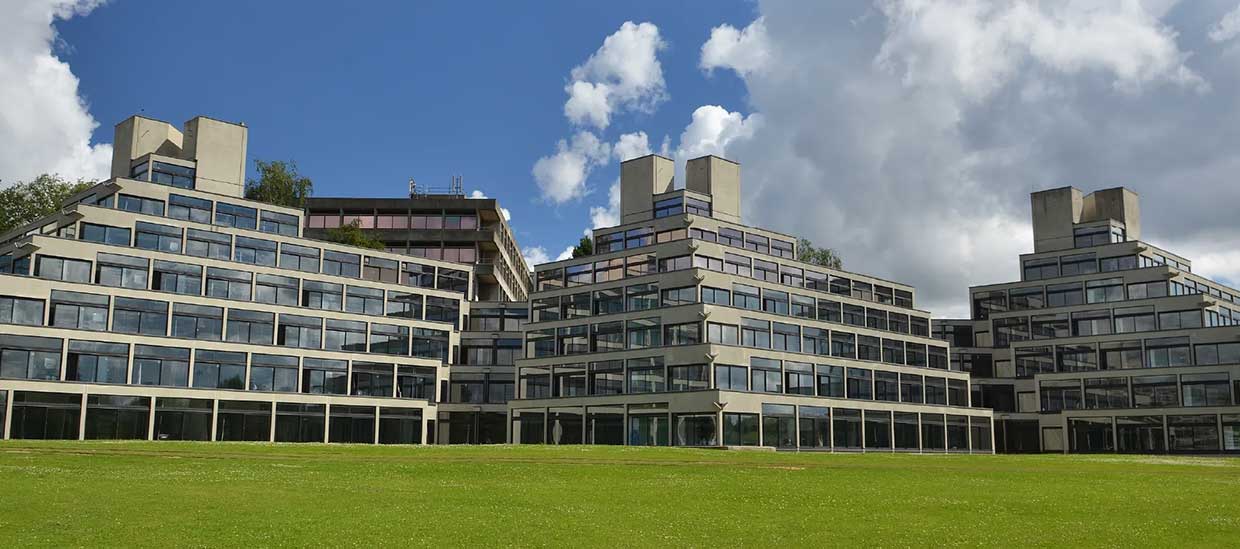


Duration
Tuition Fee
GBP 27900/Year
Intakes
Campus
On Campus / Online
We are updating home student fees
BSc (Hons) Biological Sciences
Description
The BSc Biological Sciences course at the University of East Anglia offers a fundamental, research-based education in the life sciences. The course takes a broad view of biology, from the sub-cellular to whole organisms, and offers a life-sciences based course in the first year of study, followed by modules centred around three major themes: Cell Biology and Genetics; Organisms and their Environment; and Anatomy, Physiology and Behaviour. The course allows for flexibility, giving students the freedom to specialise and shape their own learning, under expert guidance. Course Content: In this course, students will cover topics that provide an introduction to all aspects of modern biology, while specialising in areas including cellular biology, genetics, physiology, ecology, and biodiversity. This includes lab-based practical work, field work, and independent research projects. In the third year, a large portion of the workload is given over to a full-time research project.Key Modules: Key modules for this course include; Cells and Organisms, Introductory Biochemistry, Genetic and Evolutionary Biology, Ecology and Conservation, Global Environmental Challenges, Understanding the Microbial World, Anatomy and Physiology, Evolution and Animal Behaviour, Molecular Cell Biology, Comparative Physiology and Ecology and many more. Accreditations: There are no specific accreditations for the BSc Biological Sciences course.Future Careers: From this degree, graduates have found employment in a wide range of careers. Biological scientists are in great demand in sectors including healthcare, environmental management, the pharmaceutical and biotechnological industries, forensic science, and food standards. Some graduates choose to move onto master’s courses or PhD research. For more information on this course, please visit the official course page here.Entry Requirements
Please wait, we are updating our database according to latest requirements from the official university team.qualification from Pakistan is not acceptable for direct entry into this undergraduate program. There are pathway programs available for students who have done qualification from Pakistan128 UCAS points required to get admissionPlease wait, we are updating our database according to latest requirements from the official university team.Language Requirements
 OverallSpeakingListeningReadingWriting65.55.55.55.5
OverallSpeakingListeningReadingWriting65.55.55.55.5 OverallSpeakingListeningReadingWriting6459595959
OverallSpeakingListeningReadingWriting6459595959 The Language Cert test is acceptable for admission.
The Language Cert test is acceptable for admission. The Oxford ELLT test is not acceptable.
The Oxford ELLT test is not acceptable. The MOI test is not acceptable.
The MOI test is not acceptable. Overall6Speaking5.5Listening5.5Reading5.5Writing5.5
Overall6Speaking5.5Listening5.5Reading5.5Writing5.5 Overall64Speaking59Listening59Reading59Writing59
Overall64Speaking59Listening59Reading59Writing59 language test is acceptable for admission.
language test is acceptable for admission.Tuition Fee
 GBP 27900/YearTuition Fee
GBP 27900/YearTuition FeeCourse Scholarship
- No scholarships available
Initial Deposit
GBP 4000 /One TimeInitial Deposit
Description
The BSc Biological Sciences course at the University of East Anglia offers a fundamental, research-based education in the life sciences. The course takes a broad view of biology, from the sub-cellular to whole organisms, and offers a life-sciences based course in the first year of study, followed by modules centred around three major themes: Cell Biology and Genetics; Organisms and their Environment; and Anatomy, Physiology and Behaviour. The course allows for flexibility, giving students the freedom to specialise and shape their own learning, under expert guidance. Course Content: In this course, students will cover topics that provide an introduction to all aspects of modern biology, while specialising in areas including cellular biology, genetics, physiology, ecology, and biodiversity. This includes lab-based practical work, field work, and independent research projects. In the third year, a large portion of the workload is given over to a full-time research project.Key Modules: Key modules for this course include; Cells and Organisms, Introductory Biochemistry, Genetic and Evolutionary Biology, Ecology and Conservation, Global Environmental Challenges, Understanding the Microbial World, Anatomy and Physiology, Evolution and Animal Behaviour, Molecular Cell Biology, Comparative Physiology and Ecology and many more. Accreditations: There are no specific accreditations for the BSc Biological Sciences course.Future Careers: From this degree, graduates have found employment in a wide range of careers. Biological scientists are in great demand in sectors including healthcare, environmental management, the pharmaceutical and biotechnological industries, forensic science, and food standards. Some graduates choose to move onto master’s courses or PhD research. For more information on this course, please visit the official course page here.
Entry Requirements
Please wait, we are updating our database according to latest requirements from the official university team.
qualification from Pakistan is not acceptable for direct entry into this undergraduate program. There are pathway programs available for students who have done qualification from Pakistan
128 UCAS points required to get admission
Please wait, we are updating our database according to latest requirements from the official university team.
Language Requirements

Overall
Speaking
Listening
Reading
Writing
6
5.5
5.5
5.5
5.5

Overall
Speaking
Listening
Reading
Writing
64
59
59
59
59

The Language Cert test is acceptable for admission.

The Oxford ELLT test is not acceptable.

The MOI test is not acceptable.

Overall6
Speaking5.5
Listening5.5
Reading5.5
Writing5.5

Overall64
Speaking59
Listening59
Reading59
Writing59

language test is acceptable for admission.
Tuition Fee
Course Scholarship
- No scholarships available
Initial Deposit
GBP 4000 /One TimeInitial Deposit
Get more details
Visit university websiteRequirements
Listed below are the documents required to apply for this course.

University of East Anglia
About
University of East Anglia – Inspiring Creativity, Research & Global Futures 🌍🎓 🌟 About University of East Anglia (UEA) The University of East Anglia (UEA) is a world-renowned institution located i ...
Visit the
university website
for more informationLevel
undergraduate
Discipline
Other
Mode of Study
campus
CO - Assistant
Online
Welcome! 👋
I'm here to help you find the perfect study abroad options.
